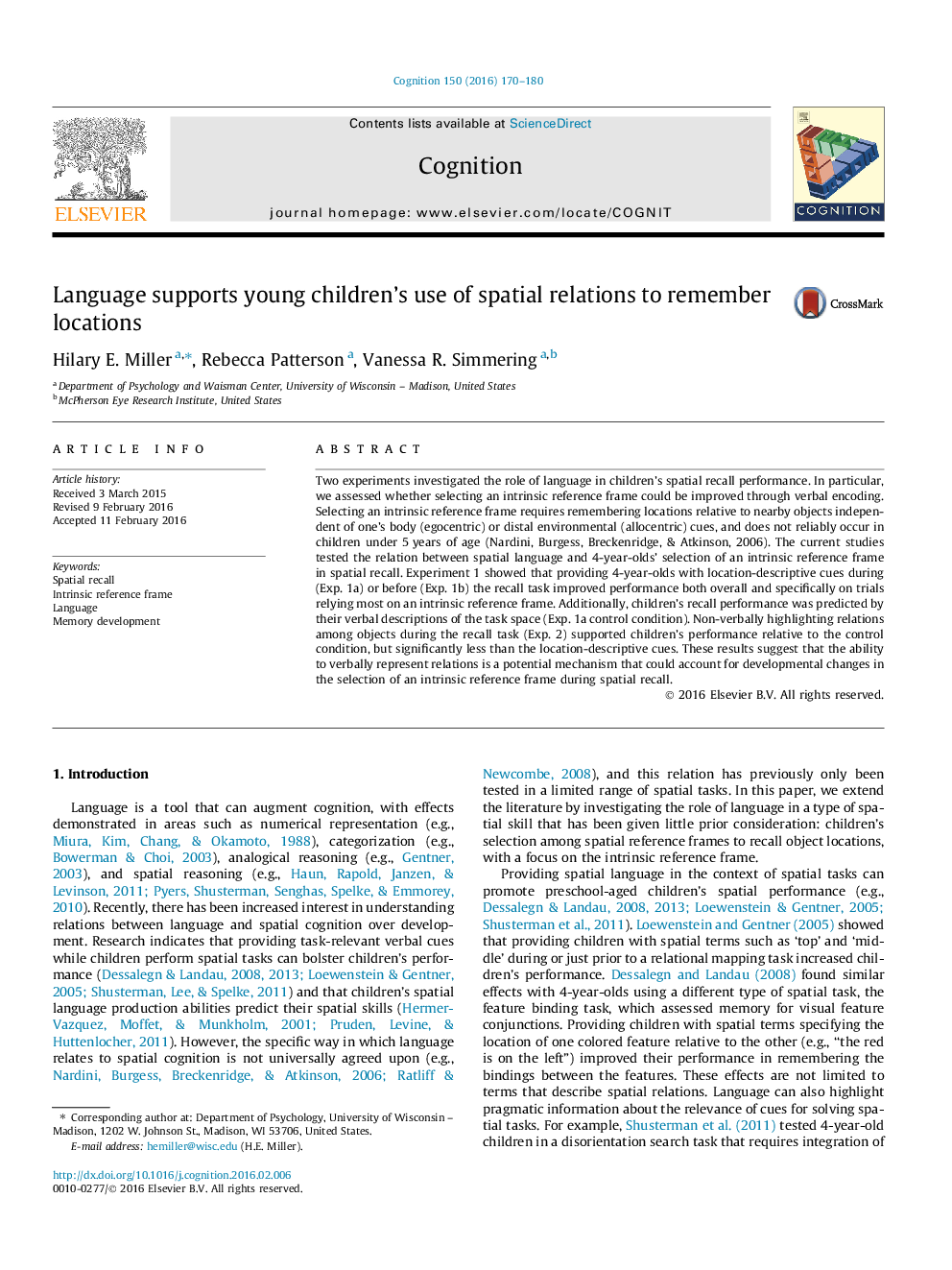| کد مقاله | کد نشریه | سال انتشار | مقاله انگلیسی | نسخه تمام متن |
|---|---|---|---|---|
| 7286254 | 1474117 | 2016 | 11 صفحه PDF | دانلود رایگان |
عنوان انگلیسی مقاله ISI
Language supports young children's use of spatial relations to remember locations
ترجمه فارسی عنوان
زبان از کودکان کوچک استفاده از روابط فضایی برای به یاد ماندن مکان ها را پشتیبانی می کند
دانلود مقاله + سفارش ترجمه
دانلود مقاله ISI انگلیسی
رایگان برای ایرانیان
کلمات کلیدی
یادآوری فضایی، قاب مرجع ذاتی زبان، توسعه حافظه،
موضوعات مرتبط
علوم زیستی و بیوفناوری
علم عصب شناسی
علوم اعصاب شناختی
چکیده انگلیسی
Two experiments investigated the role of language in children's spatial recall performance. In particular, we assessed whether selecting an intrinsic reference frame could be improved through verbal encoding. Selecting an intrinsic reference frame requires remembering locations relative to nearby objects independent of one's body (egocentric) or distal environmental (allocentric) cues, and does not reliably occur in children under 5Â years of age (Nardini, Burgess, Breckenridge, & Atkinson, 2006). The current studies tested the relation between spatial language and 4-year-olds' selection of an intrinsic reference frame in spatial recall. Experiment 1 showed that providing 4-year-olds with location-descriptive cues during (Exp. 1a) or before (Exp. 1b) the recall task improved performance both overall and specifically on trials relying most on an intrinsic reference frame. Additionally, children's recall performance was predicted by their verbal descriptions of the task space (Exp. 1a control condition). Non-verbally highlighting relations among objects during the recall task (Exp. 2) supported children's performance relative to the control condition, but significantly less than the location-descriptive cues. These results suggest that the ability to verbally represent relations is a potential mechanism that could account for developmental changes in the selection of an intrinsic reference frame during spatial recall.
ناشر
Database: Elsevier - ScienceDirect (ساینس دایرکت)
Journal: Cognition - Volume 150, May 2016, Pages 170-180
Journal: Cognition - Volume 150, May 2016, Pages 170-180
نویسندگان
Hilary E. Miller, Rebecca Patterson, Vanessa R. Simmering,
